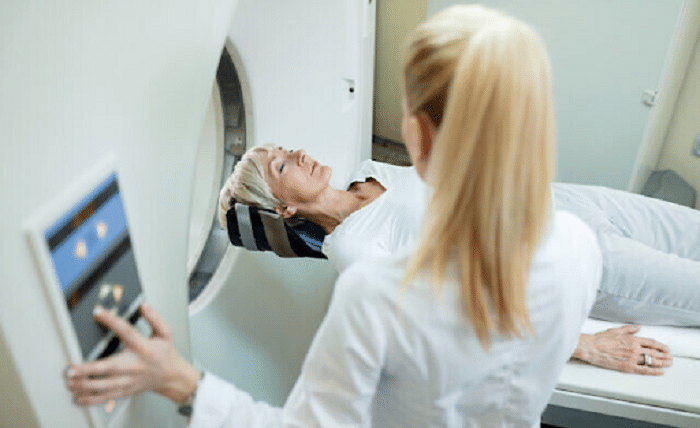Understanding the Dangers of Cancer: A Comprehensive Insight

Introduction to the Threat of Cancer
Cancer remains one of the most formidable health challenges worldwide, affecting millions of people every year. This disease involves the uncontrollable growth and spread of abnormal cells in the body, which can lead to fatal outcomes if not detected and treated early. This article delves into the various aspects of cancer, including its causes, types, and the potential health risks it poses, with the aim of raising awareness and promoting preventive measures.
What is Cancer?
Defining the Disease
Cancer is a broad term for a large group of diseases that can affect any part of the body. These diseases are characterized by the rapid creation of abnormal cells that grow beyond their usual boundaries, and which can then invade adjoining parts of the body and spread to other organs. This process, known as metastasis, is the major cause of death from cancer.
Causes and Risk Factors
Understanding What Leads to Cancer
Several factors contribute to the onset of cancer. These can be categorized into genetic, lifestyle, and environmental factors:
- Genetic Factors: Certain types of cancer run in families, suggesting a genetic predisposition. Mutations in genes like BRCA1 and BRCA2 increase the risk of breast and ovarian cancers.
- Lifestyle Factors: Smoking, excessive alcohol consumption, poor diet, and lack of physical activity can elevate the risk of developing cancer.
- Environmental Factors: Exposure to harmful substances like asbestos, benzene, and certain types of radiation can trigger cancerous changes in cells.
Common Types of Cancer
A Look at the Most Prevalent Forms
Cancer can manifest in many different forms, each affecting a specific part of the body and having its own set of symptoms and prognoses. Some of the most common types include:
- Breast Cancer: Typically manifests as a lump in the breast tissue and is one of the leading types of cancer affecting women worldwide.
- Lung Cancer: Often associated with smoking, this type can be particularly aggressive and difficult to treat.
- Prostate Cancer: Most commonly found in men, usually progressing slowly and may initially show few or no symptoms at all.
- Colorectal Cancer: Affects the colon or rectum and is associated with diets high in red meats and processed foods.
The Health Implications of Cancer
Examining the Impact on Patient Health
The effects of cancer go beyond the physical symptoms of the disease. Cancer can also have significant psychological, emotional, and social impacts. Patients may suffer from depression and anxiety due to their illness. Moreover, the side effects of cancer treatments like chemotherapy and radiation can be severe, causing fatigue, nausea, and weakened immune function, which complicates recovery and diminishes quality of life.
Prevention and Early Detection
Key Strategies to Combat Cancer
Preventing cancer involves both reducing risk factors and enhancing your body’s ability to fight it. Important preventive measures include:
- Lifestyle Changes: Adopting a healthy diet, engaging in regular exercise, quitting smoking, and limiting alcohol consumption.
- Regular Screening: Early detection through routine screenings such as mammograms, colonoscopies, and skin checks can significantly improve treatment success rates.
- Vaccinations: Vaccines like the Human Papillomavirus (HPV) vaccine can prevent certain types of cancers.
Treatment Options
Navigating Through Cancer Care
Treatment for cancer depends on the type and stage of the disease. Common treatments include:
- Surgery: To remove cancerous tissue.
- Chemotherapy: Uses drugs to kill cancer cells.
- Radiation Therapy: Uses high-energy rays to kill cancer cells or shrink tumors.
Immunotherapy: Employs the body’s immune system to fight cancer.
- Each treatment has its own side effects and potential outcomes, which doctors consider when creating a patient-specific treatment plan.
The Role of Research in Cancer Treatment
Advancements in Cancer Care
Ongoing research is crucial in the fight against cancer. Researchers are continually finding better ways to treat cancer, manage its side effects, and improve the quality of life for patients post-treatment. Innovations such as targeted therapy and personalized medicine are changing the landscape of cancer treatment, making it more effective and less harmful.
A Call to Action
The threat posed by cancer is undeniable, but with increased awareness, preventive measures, and advancements in medical technology, there is hope for reducing its impact. By staying informed about the risks and early signs of cancer, actively engaging in preventive practices, and supporting cancer research, we can collectively strive to diminish the prevalence and severity of this disease.
Enhancing Community Awareness and Education
Spreading Knowledge to Prevent Cancer

Raising awareness about cancer and its risk factors plays a crucial role in prevention. Community education initiatives can significantly impact public health by informing individuals about how lifestyle choices can influence cancer risk. Educational programs in schools, workplaces, and community centers that focus on healthy eating, the importance of exercise, and the dangers of tobacco and alcohol can empower individuals to make choices that reduce their cancer risk. Additionally, these programs can emphasize the importance of regular medical check-ups and screenings, which are key in detecting cancer early when it is most treatable.
The Importance of Support Systems
The Role of Emotional and Social Support in Cancer Care
Dealing with cancer can be a deeply isolating experience, making social support from family, friends, and community groups vital. Support groups can offer a space for sharing experiences and coping strategies, reducing the emotional burden of the disease. Furthermore, psychological support from counselors or psychologists can help patients and their families manage the stress and emotional turmoil that cancer often brings. This support can enhance the overall well-being and resilience of patients, aiding in their treatment and recovery.
Innovations in Diagnostic Technologies
Advancing Early Detection with Cutting-Edge Technology
Early detection of cancer significantly improves the chances of successful treatment. Recent advancements in diagnostic technologies udintogel have enhanced our ability to detect cancer at its earliest stages. Techniques like liquid biopsies, which detect cancer cells or DNA in the blood, and advanced imaging technologies allow for less invasive, quicker, and more accurate diagnosis. Continued investment in research and development of diagnostic tools is essential to further improve early detection rates and provide timely interventions.
Global Challenges and Solutions
Addressing Cancer in Low-Resource Settings
While progress has been made in cancer treatment and prevention, significant disparities exist globally, particularly in low- and middle-income countries where resources and access to healthcare are limited. International cooperation and support are necessary to build healthcare infrastructure, train healthcare professionals, and make cancer care accessible to all. Programs designed to transfer knowledge and resources from high-income to lower-income regions can help alleviate these disparities and improve global cancer outcomes.
The Impact of Lifestyle on Cancer Prevention
Deepening Understanding of Lifestyle Choices

There is an undeniable link between lifestyle choices and the risk of developing cancer. Diet, physical activity, and exposure to toxins play significant roles in an individual’s cancer risk profile. Public health policies that promote healthy environments and encourage physical activity can significantly reduce the prevalence of cancer. Additionally, banning harmful substances and implementing strict regulations on known carcinogens in industries can decrease the environmental risk factors associated with cancer.
Future Directions in Cancer Research
Exploring New Frontiers in Treatment and Prevention
The future of cancer research holds promising prospects for new treatments and potentially even cures. Areas like gene editing, immunotherapy, and the development of novel drugs are at the forefront of scientific inquiry. Moreover, understanding the genetic basis of cancer can lead to more personalized treatment plans that are tailored to the specific genetic makeup of an individual’s cancer, potentially increasing the effectiveness of treatment and reducing side effects.
A Unified Approach to Combat Cancer
Cancer is a complex and varied disease, but with a unified approach that includes prevention, early detection, effective treatment, and supportive care, we can hope to see a decline in cancer rates worldwide. It is essential for individuals, communities, and governments to work together to combat this disease. By investing in education, supporting research, improving healthcare access, and fostering global cooperation, we can tackle the challenges posed by cancer and move towards a healthier, cancer-free world.




